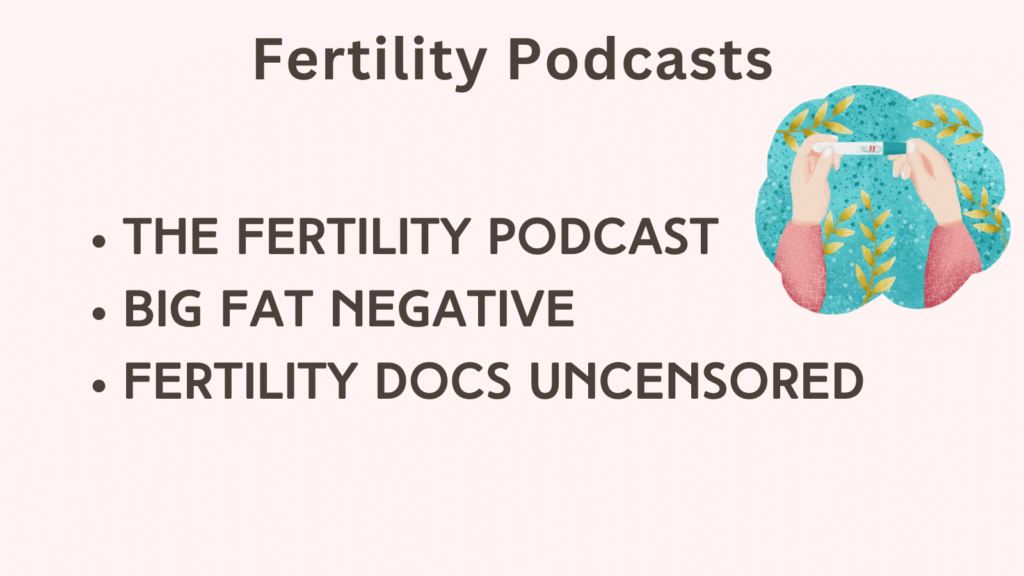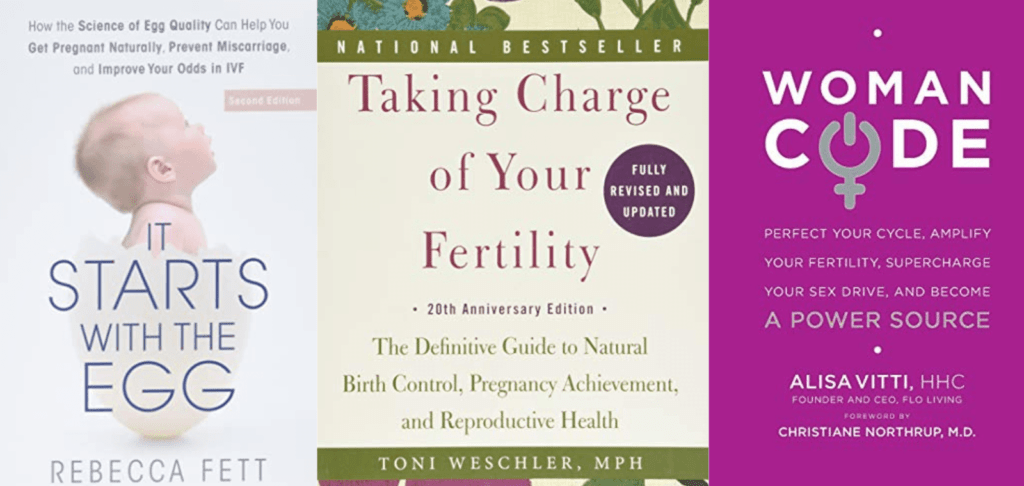This post includes some of the best Chinese Medicine fertility tips to help you on your journey to conceive.
Disclosure: Some of the links below are affiliate links. This means that, at zero cost to you, I will earn an affiliate commission if you click through the link and finalize a purchase.
What Is Traditional Chinese Medicine?
Traditional Chinese Medicine (TCM) is a holistic medical system that originated in China over 2,000 years ago.
It is based on the concept of qi which is the vital energy that flows through our body and keeps us healthy.
TCM uses a combination of practices including acupuncture, herbal medicine, massage (Tui Na), dietary therapy, and exercise (such as Tai Chi and Qigong) to promote health and treat disease.
TCM believes that illness occurs when there is an imbalance or blockage of qi in the body, and treatments aim to rebalance and restore the flow of qi.
It takes into account not only the physical symptoms but also the emotional and mental state of the patient, treating the whole person rather than just the disease.
TCM is still widely practiced today, not only in China but also around the world, and has gained recognition for its effectiveness in treating a wide range of health conditions.
Chinese medicine is often used in conjunction with Western medicine to provide a more holistic approach to healthcare.
What Is Fertility?
Fertility is the ability of a couple to conceive – that is the fertilization of a woman’s egg with a man’s sperm – and produce offspring.
For many couples getting pregnant poses no problems; regular unprotected intercourse is enough to conceive.
However, for many other couples conception can be a struggle.
Conception is a complex process that can be affected by a number of factors including age, lifestyle, weight, smoking, stress and even prescribed medication.
According to the World Health Organization (WHO) roughly 1 in 6 people globally are affected by infertility. (source)
If you have any concerns about your fertility, it is important to speak with a healthcare provider who can offer guidance and support.
Related: Best 30 Fertility Affirmations
Why Does Infertility Occur?
Infertility can occur due to a number of reasons, such as hormonal imbalances, problems with ovulation or sperm production, blocked fallopian tubes, endometriosis, genetic factors, and underlying medical conditions like thyroid disorders, diabetes, or autoimmune diseases.
However, not getting pregnant after a few months of trying doesn’t always mean that you have a ‘fertility problem’. Studies show that roughly 75% conceiving within six months. (source)
Infertility is not just a women’s issue. About 40-50% of cases of infertility are attributable to men. (source)
Lifestyle factors like smoking, alcohol consumption, obesity, and stress can also affect fertility. Sometimes, infertility may be unexplained, where no obvious cause is found despite thorough testing.
Related: Fertility Resources (Support Groups, Apps, Books, Podcasts)
How Effective Is Traditional Chinese Medicine For Increasing Fertility?
Traditional Chinese Medicine has been used for centuries to enhance fertility in both men and women.
Acupuncture, herbal remedies, dietary therapy, and lifestyle modifications are some of the most commonly used methods in Traditional Chinese Medicine (TCM) to promote fertility.
Studies have shown that TCM can be an effective tool for improving fertility outcomes. (source)
Acupuncture has been shown to increase blood flow to the reproductive organs, regulate hormone levels, reduce stress, and improve ovulation and menstrual cycle regularity. (source)
Herbal remedies have also been shown to improve fertility by balancing hormones, increasing blood flow, and improving sperm quality. (source)
A meta-analysis of several studies showed that TCM can increase the pregnancy rate in couples undergoing IVF treatment.
TCM was found to be effective in improving the quality of oocytes and embryos, reducing the risk of miscarriage, and enhancing the response to fertility drugs. (source)
However, it is important to consult with a qualified TCM practitioner to ensure safe and appropriate treatment.
Chinese Medicine Fertility Tips
#1. Eat A Healthy And Balanced Diet
A balanced diet that includes plenty of fruits, vegetables, whole grains, lean proteins and healthy fats is key to improving fertility.
Foods that may improve fertility include:
- Leafy greens such as spinach and kale which contain folate, a B-vitamin that is crucial for healthy ovulation. (source)
- Fatty fish like salmon, sardines and herring that are rich in omega-3 fatty acids which have been shown to improve fertility. (source)
- Citrus fruits such as oranges, grapefruits and lemons that are high in vitamin C which can improve sperm quality (source) and reduce the risk of ovulatory infertility. (source)
- Nuts can improve sperm health. (source)
- Avocado, a fruit that is high in healthy fats and folic acid, both beneficial for reproductive health. (source)
Warning
According to the Food & Drug Administration, women who might become or are pregnant or breastfeeding should not eat more than two to three servings of tinned tuna a week, because of the risk of mercury contamination. (source)
Liver is rich in folic acid, but women who might become or are pregnant or should not eat it as it is high in vitamin A. Having large amounts of vitamin A can harm your unborn baby. (source)
Related: Best 70 Pregnancy Hacks (+Products Recommendation)
#2. Stay Hydrated
Staying hydrated can help regulate your menstrual cycle and support hormonal balance, which can improve your chances of conceiving.
The recommended daily water intake for women is around 8-10 glasses (64-80 ounces) of water per day.
#3. Limit caffeine intake
A study on female fertility and caffeine consumption, published in 1988, showed that women who drunk more than one cup of coffee a day were half as likely to conceive than women who consumed less. (source)
However, no subsequent study has been able to replicate those findings. (source)
But if you want to play it safe, it is recommended to consume no more than 200 to 300 mg of caffeine a day (ideally, 100 mg or less). (source)
How much caffeine is in a cup of coffee or tea?
- Decaf coffee (8 oz.) = 2-15 mg
- Caffeinated soft drink (12 oz.) = 30 to 40 mg
- Green or black tea (8 oz.) = 30 to 50 mg
- Regular instant (8 oz.) = 27 to 173 mg
- Energy drinks (8 oz.) = 40 to 250 mg
(source)
Related: Best 7 Pregnancy Self Care Products
#4. Exercise regularly
Moderate exercise (up to 30 minutes per day) can help you reduce stress levels and maintain a healthy weight, which reduces the risk of fertility problems.
Regular exercise can help regulate hormones such as estrogen, progesterone and testosterone, which can improve fertility. (source)
#5. Acupuncture
Acupuncture is a popular complementary therapy for fertility that has been used for thousands of years in traditional Chinese medicine.
It involves the insertion of fine needles into specific points on the body to promote the flow of Qi, or vital energy.
Studies have shown that acupuncture can help improve infertility by:
1. Regulating the menstrual cycle: Acupuncture can help regulate the menstrual cycle and improve ovulation in women. (source)
2. Improving blood flow to the reproductive organs: Acupuncture can improve blood flow to the ovaries and uterus, which can help increase the chances of conception. (source)
While acupuncture may not be a standalone treatment for fertility issues, it can be a helpful complementary therapy when used alongside other treatments.
It’s important to consult with a licensed acupuncturist who specializes in fertility to determine the best course of treatment for your individual needs.
Acupuncture Directories:
#6. Chinese Herbs
Certain herbs can help improve fertility by regulating hormone levels and improving reproductive functions.
Consult with a qualified practitioner to determine the appropriate dosage and method of administration based on your individual medical history and needs.
Find a list of registered herbalists HERE.
Herbs to avoid
According to a recent study, St John’s wort, gingko biloba and Echinacea reduce sperm quality and the ability to penetrate an egg. (source)
Related: Top 11 Tips On How To Deal With Morning Sickness At Work
Other Things You Can Do To Increase Your Fertility
#1. Understand Your Fertility
Here are a few key points to understanding your fertility:
1. Menstrual cycle: The menstrual cycle is the regular natural change that occurs in the female reproductive system. It involves the release of an egg from the ovary and the thickening of the uterine lining in preparation for pregnancy.
On average, the menstrual cycle lasts around 28 days, although it can vary from person to person.
2. Ovulation: Ovulation is the process where a mature egg is released from the ovary and travels down the fallopian tube towards the uterus.
It typically occurs around day 14 of a 28-day cycle, but can occur earlier or later depending on the length of the cycle.
3. Fertile window: The fertile window refers to the time period during which a woman is most likely to get pregnant if she has unprotected sex. This typically spans a few days before and after ovulation when the egg is viable for fertilization.
Related: Best +25 Pregnancy Journal Prompts (+FREE PDF Download)
#2. Track Your Ovulation
Knowing when you’re most likely to be ovulating will help you determine your fertile window – when you are most fertile and likely to conceive.
Signs you’re ovulating include:
1. Increase in basal body temperature: Your basal body temperature (BBT) (the lowest natural body temperature recorded after a period of rest) increases by about 0.5 to 1 degree Celsius after ovulation. (source)
2. Cervical mucus changes: The consistency and color of your cervical mucus (a fluid released from the opening of uterus) change during ovulation. It becomes more slippery, clear, and stretchy, similar to raw egg whites. (source)
3. Ovulation pain: Some women experience slight pain or aches on one side of their lower abdomen during ovulation. (source)
4. Breast tenderness: Some women may experience breast tenderness or swelling around ovulation.
5. Changes in libido: You may experience an increase in sex drive during ovulation. (source)
6. Positive ovulation test: Ovulation predictor kits can detect the surge in luteinizing hormone (LH) that triggers ovulation.
You can also use an online ovulation calendar/calculator:
Related: Best Pregnancy Resources (Information, Apps, Books, Podcasts)
#3. Consider Taking Supplements
Some supplements like CoQ10, folic acid and vitamin D can improve fertility.
1. Coenzyme Q10
Coenzyme Q10, also known as CoQ10, ubiquinone, and ubiquinol, is produced naturally in the body. However, levels of CoQ10 decrease with age.
CoQ10 as an antioxidant helps to reduce oxidative stress, which improves the sperm quality in men (source) as well as ovarian response and embryo quality in women (source).
2. Vitamin D
Vitamin D is shown to promote healthy pregnancy, better quality semen (source), and higher IVF success rates. (source)
3. Folate
Also known as folic acid, folate is a B vitamin helps support the rapidly growing fetus. (source)
In fact, the CDC recommends all women of reproductive age to take 400 micrograms (mcg) of folic acid each day. (source)
Folic acid is also important for the production and development of mature sperm. Research shows that low levels of folic acid increased sperm DNA damage. (source)
Note: Consult with your doctor before taking any supplements.
Related: Minimalist Hospital Bag Checklist (+Hospital Bag Checklist PDF)
#4. Keep Sperm Cool
The male reproductive organs need to be kept several degrees cooler than normal body temperature, as sperm production can only take place at 32ºC (89ºF) (normal body temperature is 37ºC (98.4ºF)).
One study shows that sperm production decreased by as much as 40% per 1 degrees C increase in testicular or scrotal temperature. (source)
Here are some tips:
1. Avoid exposure to heat: Heat can damage sperm. Avoid hot environments, such as saunas, hot tubs, and long hot showers or baths.
2. Wear loose clothing: Tight-fitting clothing can increase the temperature of the testicles, which can negatively affect sperm production. Wear loose-fitting clothes instead.
3. Keep electronic devices away from your groin: Laptops, cell phones and other electronic devices can produce heat that can damage sperm. (source)
Keep them away from your groin area.
Related: Best +75 Pregnancy After Loss Affirmations
#5. Consider Your Positioning
While no scientific evidence strongly supports one position over another for conception, positions where gravity can aid sperm movement, like missionary, are often recommended by some healthcare providers.
#6. Avoid Certain Activities Immediately After Sex
1. Bathroom Break: Waiting 5-10 minutes before using the bathroom can give sperm more time to travel towards the egg. If you need to go right after, don’t worry too much—plenty of sperm have already started their journey.
2. Douching: Avoid douching, as it can disrupt the natural pH balance of the vagina and potentially reduce the chances of conception.
#7. Stay Lying Down for a Few Minutes
Remaining lying down for about 15 minutes post-intercourse can help facilitate the sperm’s journey. Studies haven’t conclusively shown that this increases conception rates, but it may help provide peace of mind.
Some believe that raising your legs for 10–15 minutes post-intercourse can help sperm travel towards the egg by using gravity. Though scientific evidence is limited, many find it a helpful ritual.
Placing a pillow under your hips after sex can tilt your pelvis upward, helping to create a slight downward angle that may assist sperm in moving towards the cervix.
#8. Avoid Certain Food
Papaya Seeds and Unripe Papaya: Unripe papaya and its seeds contain enzymes like papain, which can potentially interfere with pregnancy by promoting uterine contractions.
While ripe papaya is generally safe and nutritious, consuming unripe papaya or seeds in high amounts has been linked to reduced fertility in both men and women. (source)
#9. Avoid Excessive Exercise
Intense physical activity, especially high-impact or prolonged sessions, can impact ovulation and hormone levels, sometimes disrupting menstrual cycles.
Balanced, moderate exercise supports reproductive health, but overdoing it can counteract fertility efforts. (source)
#10. Opt for Sperm-Friendly Lubricants
Many personal lubricants are not sperm-friendly and may affect sperm mobility and vitality.
Certain ingredients in regular lubricants can alter the pH balance or create a less hospitable environment for sperm, making it harder for them to reach the egg.
There are, however, fertility-friendly lubricants specifically designed to mimic cervical mucus, creating a more supportive environment for sperm.
#11. Protect Yourself From Environmental Toxins
Studies have shown that chemicals in air, water, food, and health-and-beauty aids are damaging fertility in many ways. (source)
Here are some tips to protect yourself from environmental toxins:
1. Purify your indoor air: Use air purifiers, open windows for fresh air, and avoid using air fresheners or candles.
2. Filter your tap water: Install a water filtration system to remove contaminants from your drinking water.
3. Eat organic foods: Choose organic fruits and vegetables to reduce exposure to pesticides and other chemicals.
4. Use safe personal care products: Many personal care products such as shampoos, lotions, and makeup contain harmful chemicals. Look for products with plant-based ingredients and avoid those with synthetic fragrances or parabens.
5. Use natural cleaning products: Avoid products that contain harsh chemical ingredients. Instead, opt for natural cleaners or make your own using vinegar and baking soda.
6. Limit exposure to pollution: Avoid exercising outside during times of high pollution.
7. Check for lead: Have your home tested for lead paint and pipes, and avoid using old ceramic dishes that may contain lead.
By making small changes to your everyday habits, you can safeguard your health and improve your chances of conceiving.
Note that these tips are not intended to replace medical treatment. If you are experiencing fertility issues, it is important to seek advice from a qualified healthcare provider.
When to Seek Help
If you’ve been trying to conceive for over a year (or six months if you’re over 35), consider consulting a fertility specialist. They can conduct tests and provide guidance tailored to your needs.
Conclusion
Traditional Chinese Medicine (TCM) has been used for centuries to improve fertility in both men and women.
This may involve acupuncture, herbal medicine, diet and lifestyle changes, as well as mind-body exercises that can help reduce stress like Qi Gong, Tai Chi, and meditation.
TCM is not a replacement for Western medical treatments but rather can be used in conjunction with them to improve fertility outcomes.
References
- “Am I ovulating? physical signs that you are fertile,” WebMD. [Online]. Available: https://www.webmd.com/baby/am-i-ovulating.
- Fueling fertility: How nutrition can improve your chances. Available at: https://share.upmc.com/2019/05/fueling-fertility-with-nutrition/




